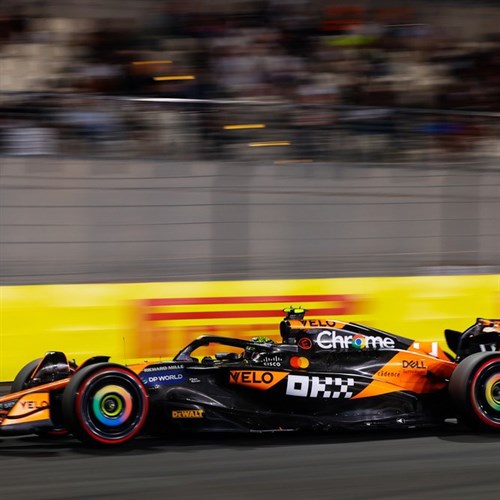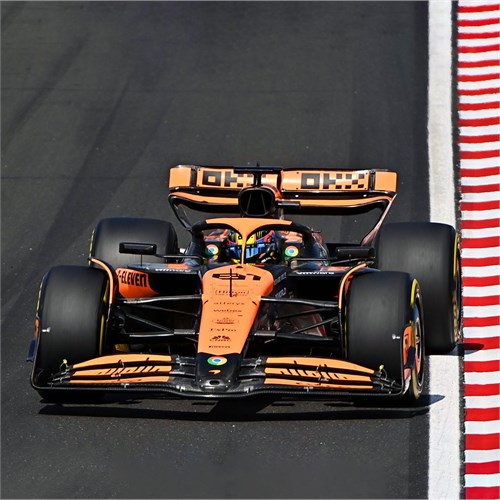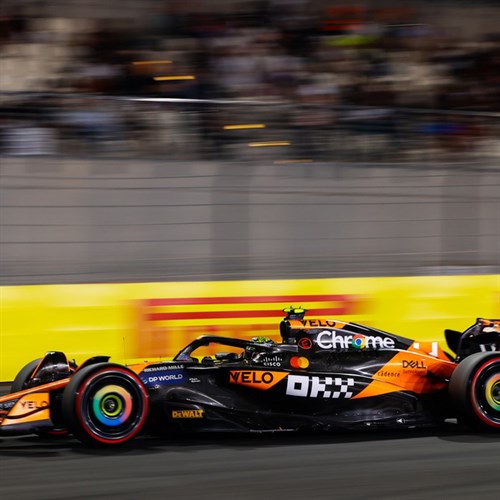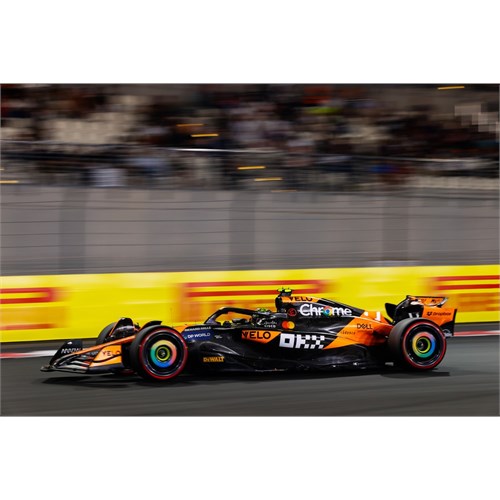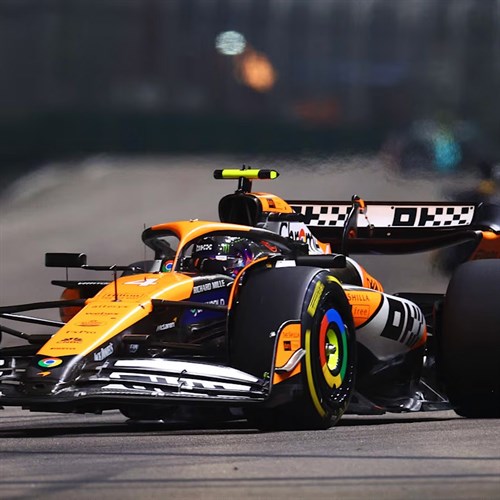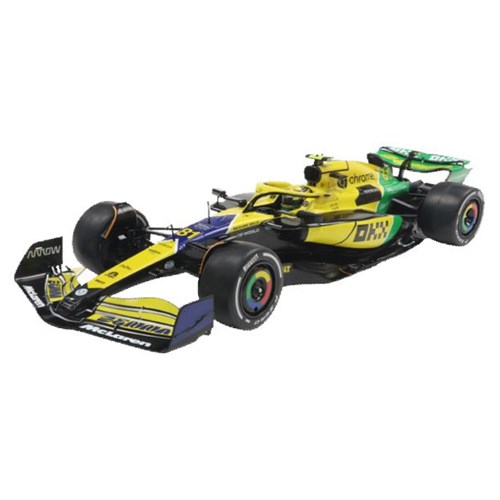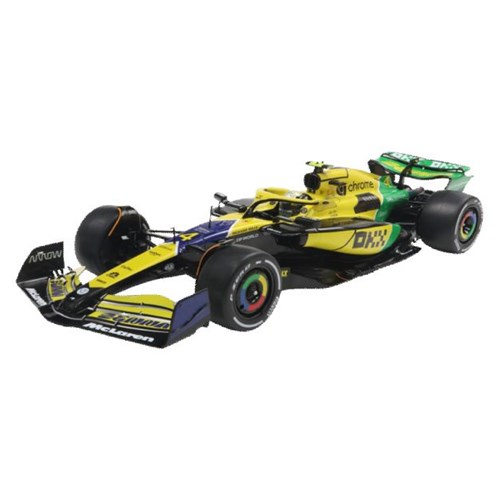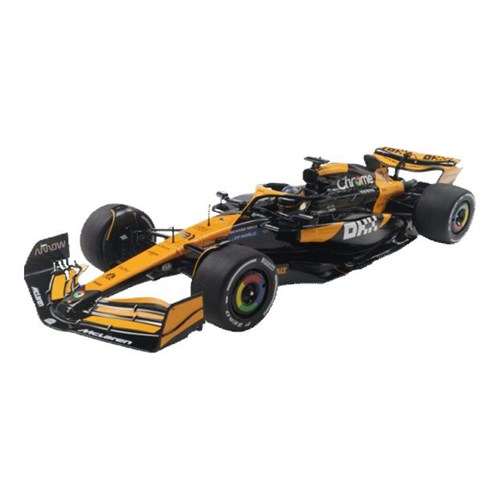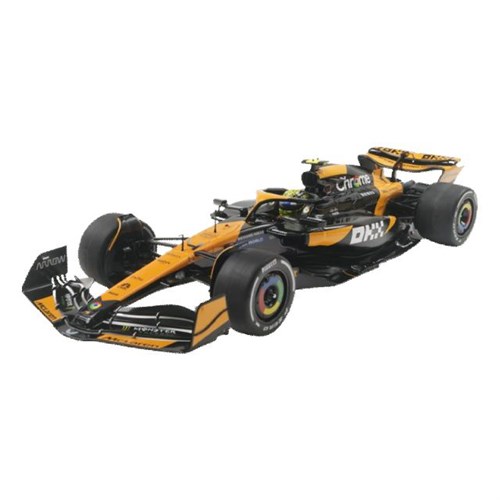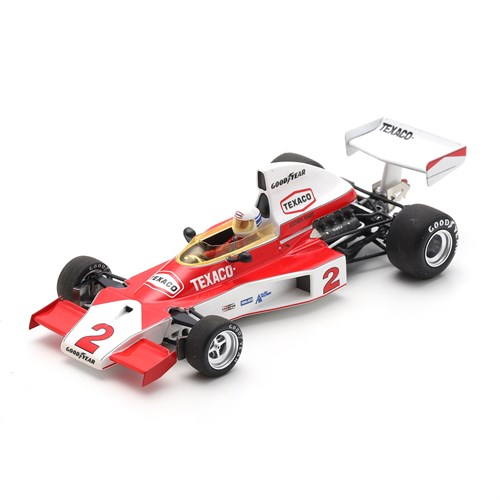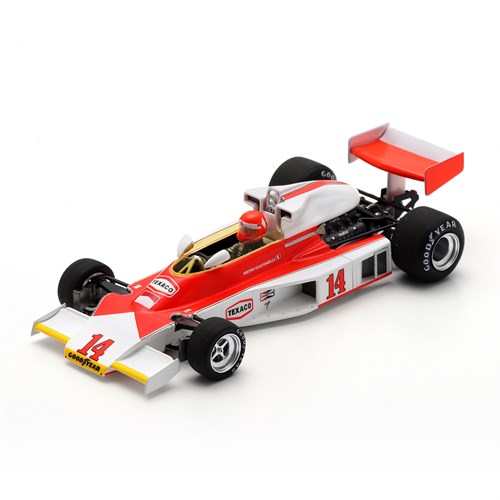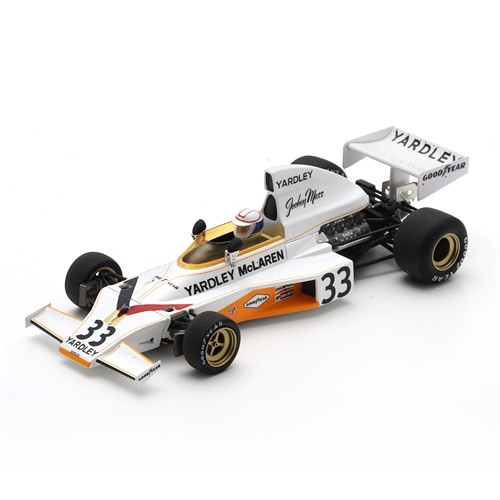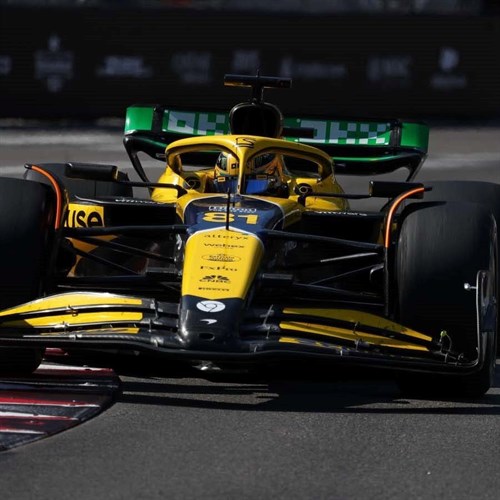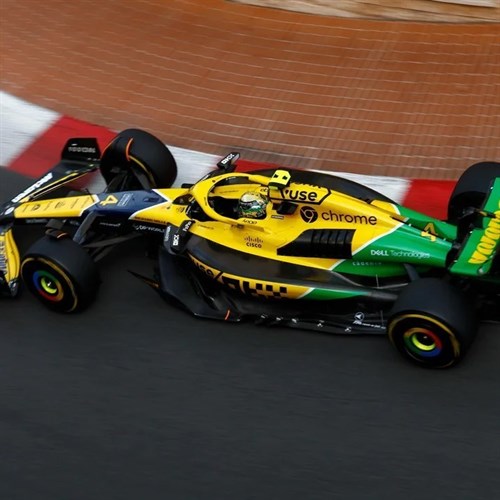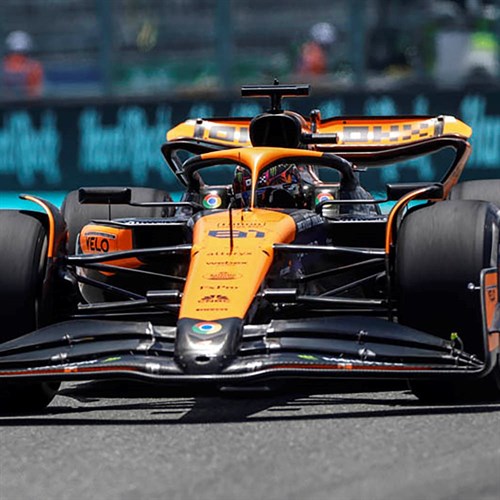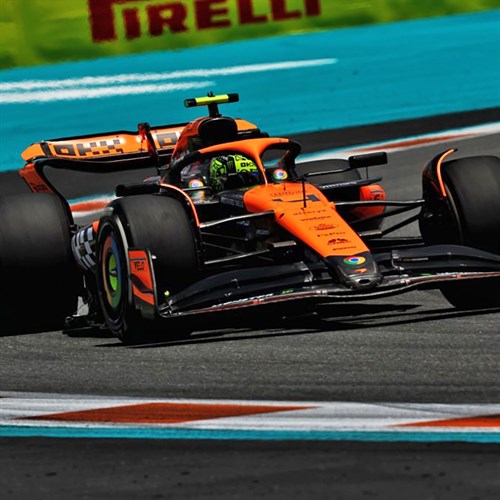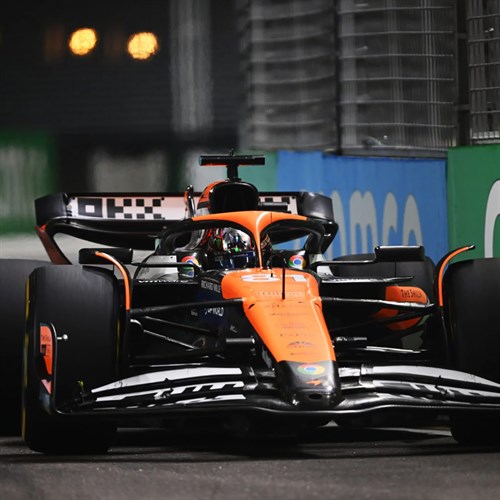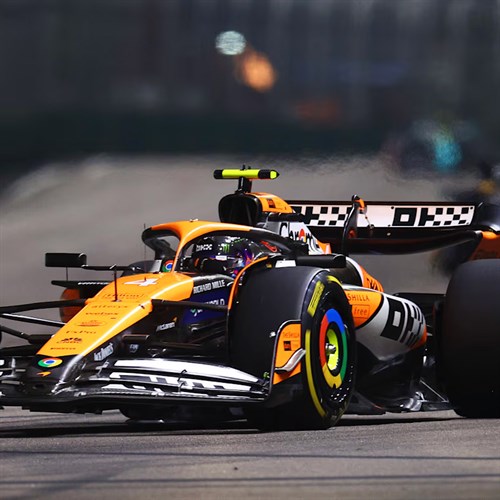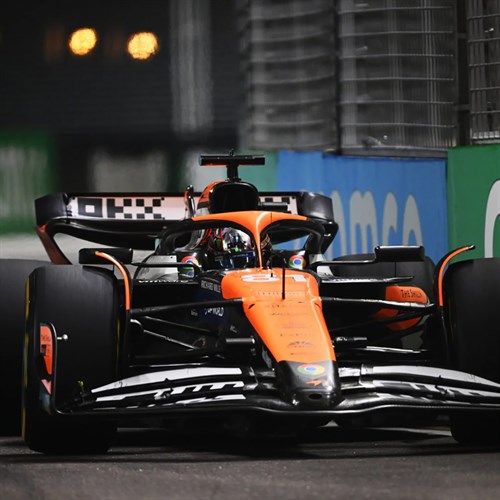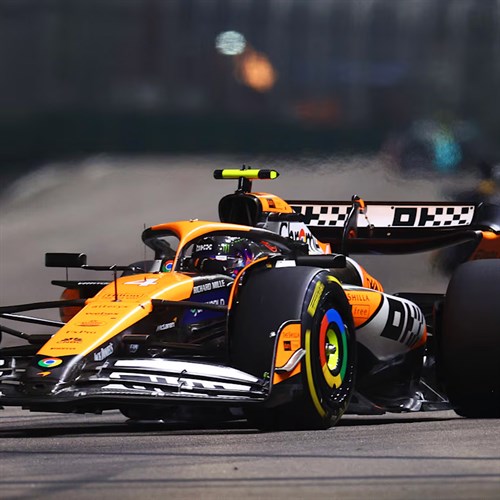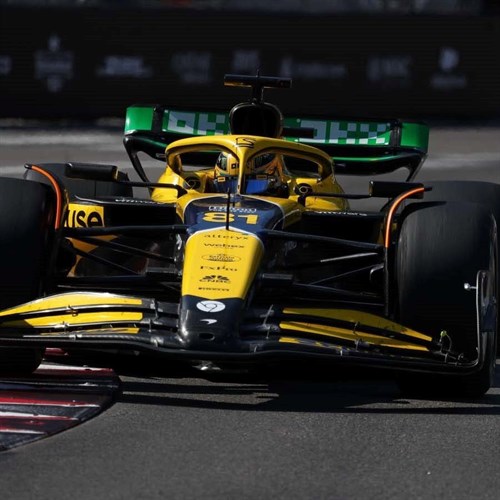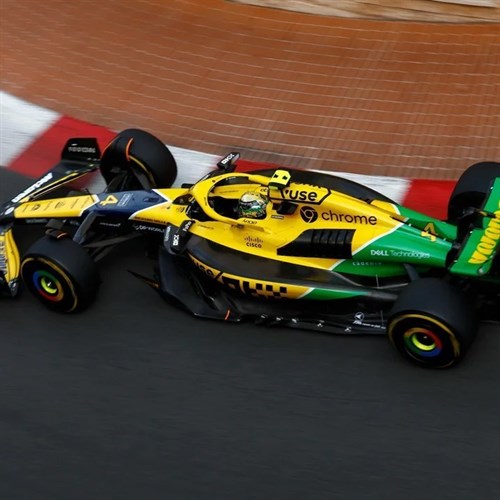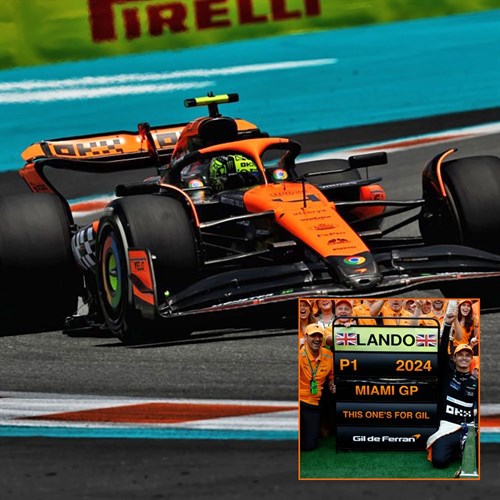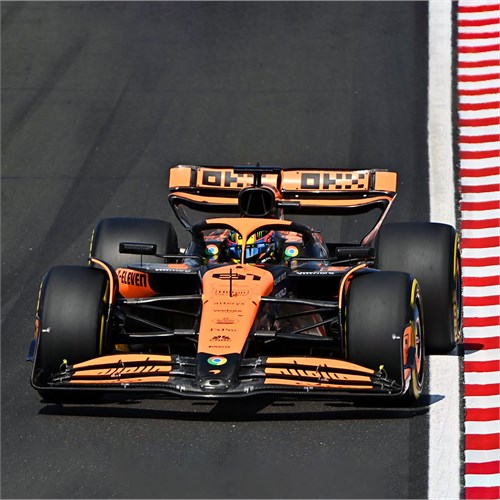- Menu
- Diecast brandsFeatured brandsAll diecast brands A - L
- F1 models
- Road carsSearch by marque A-JSearch by marque L-ZSearch by scale
- Motorsport modelsSearch by motorsportSearch by scale
- Motorbike modelsSearch by motorbike typeValentino Rossi
- Other models
- Models by Scale
- SaleSearch by product typeSearch by scale
- Stories
- Sign In
- Register
McLaren Formula One model cars | McLaren F1 models
Buy McLaren F1 model cars from the UK’s largest stockist of resin and diecast models. Huge selection of 1:18 and 1:43 modern and classic McLaren model cars include subjects manufactured by Minichamps, Spark and more.
Successful Formula One driver Bruce McLaren entered his own McLaren team into the Formula One world championship in 1966. After a couple of partial campaigns the team raced full-time from 1968, scoring its first three grand prix victories that season; one for team founder McLaren, and two for his team-mate and fellow New Zealander Denny Hulme.
Another victory (for Hulme) and several podiums followed in 1969, before McLaren tragically lost his life in June 1970, after an accident while testing one of his Can-Am machines at Goodwood.
The team wouldn’t taste grand prix success again until 1972, by which time the team’s traditional orange had given way to commercial sponsorship from Yardley. This was then replaced with Marlboro backing in 1974, and the tobacco brand would remain the title sponsor of the McLaren team for the next 22 years. 1974 also saw the team secure its first drivers’ and constructors’ world championships, with Emerson Fittipaldi lifting his second and final world title.
McLaren would secure another driver’s title in 1976, Britain’s James Hunt emerging triumphant over Ferrari’s Niki Lauda after one of the most bitter championship fights in the history of the sport. Hunt would score three more race wins in 1977 before leaving the team at the end of the season.
The McLaren F1 team then entered a lean spell, only scoring two podium finishes from 1978 to 1980, and not bettering seventh in the constructors’ championship. In 1980 it gave future multiple world champion Alain Prost his debut in the sport.
McLaren merged with Ron Dennis’s Project Four organisation for the 1981 season, and immediately started challenging for race wins again, John Watson winning the British Grand Prix and also scoring three further podiums. For 1982 Niki Lauda came out of retirement to drive for the team, he and Watson scoring five wins and several more rostrum finishes over two years.
In 1984 McLaren absolutely dominated, Prost rejoining the team and winning seven races compared to five victories for team-mate Lauda. It was Lauda who would emerge as champion, however, just half a point ahead of his team-mate. Prost then wiped the floor with everyone in 1985, sweeping to his first world championship with ease. The Frenchman would double up in 1986, taking advantage of the faster Williams of Nigel Mansell and Nelson Piquet taking points off of each other.
McLaren had to play second fiddle to Williams in 1987, but in 1988 it enjoyed one of the most dominant seasons that Formula One has ever witnessed. Not only was the mercurial Ayrton Senna teamed with Prost, but the team now had by far the best engine in the business, courtesy of Honda. Senna and Prost won 15 of the year’s 16 races between them, the Brazilian lifting his first drivers’ crown.
McLaren faced stiffer opposition for race wins in 1989 but was still unchallenged in the championship. The relationship between Senna and Prost soured considerably however, with a collision between the team-mates at the Japanese Grand Prix handing the drivers’ title to the Frenchman, who left for Ferrari at the end of the season.
Senna would score his second and then third drivers’ titles in 1990 and 1991, but Williams would dominate proceedings in 1992 and 1993. Senna still scored several grand prix wins, but was not in a position to challenge for the drivers’ championship.
McLaren would be winless from 1994 to 1996, joining forces with engine supplier Mercedes for 1995. In 1997 the team’s look changed from the red and white of Marlboro to the silver and black of West. The outfit also returned to the winner’s circle, David Coulthard winning twice and Mika Hakkinen once. Hakkinen would then win the next two drivers’ titles after close fights with Ferrari drivers, defeating Michael Schumacher in 1998 and Eddie Irvine in 1999.
In 2000 Ferrari started its five-year run of drivers’ and constructors’ championship doubles, McLaren slipping to second and then third place in the teams’ standings. For the 2002 season Hakkinen retired and was replaced with Kimi Raikkonen, the young Finn running Schumacher close for the 2003 title. Raikkonen also narrowly missed out in 2005, his seven grand prix wins mated with appalling reliability.
After a winless 2006 it was a completely new driver line-up for 2007, reigning double world champion Fernando Alonso coming on board alongside exciting British rookie Lewis Hamilton. Both drivers remained in the hunt for the drivers’ championship across the year, but were pipped by the now Ferrari-mounted Raikkonen. In 2008 it was Hamilton who did the pipping, snatching the title from Ferrari’s Felipe Massa at the last corner of the last lap after overtaking the Toyota of Timo Glock. We still hold a good range of Lewis Hamilton models from this era.
2009 to 2012 brought several more victories for McLaren (Jenson Button joining the Woking squad in 2010), but further world titles would prove elusive. Hamilton left the team at the end of 2012, while linking up with Honda again in 2015 proved disastrous, the team slumping to ninth in the constructors’ championship in 2017.
In 2019 McLaren (now Renault-powered) gave the first F1 chance to another exciting British rookie, and we offer quite a few Lando Norris model cars these days. Hopefully a future world champion. Fellow youngster Carlos Sainz Jnr also joined the team that season, scoring the team’s first podium for half a decade. In 2020 both drivers took home a trophy for finishing on the rostrum.
In 2021 McLaren once again joined forces with Mercedes, and Daniel Ricciardo replaced Sainz Jnr. The team’s finest hour came in the Italian Grand Prix when it scored a 1-2 finish (Ricciardo ahead of Norris), which was its first Formula One victory for nine years. Norris added three more podiums over the course of the season.
The team lost a little competitiveness in 2022 with Norris only standing on the podium once, while Ricciardo was let go at the end of the year after a disappointing season. He was replaced with rookie fellow Australian Oscar Piastri, McLaren again brave enough to promote exciting young talent to a race seat. After a disappointing start to the 2023 season McLaren came on in leaps and bounds, Norris scoring seven podium finishes (including a run of four in a row) while Piastri visited the podium twice, and won the Qatar Sprint Race.
McLaren again had a slow start to the season in 2024, before becoming the team to beat from the middle of the campaign. Norris and Piastri both scored their first grand prix victories (in Miami and Hungary respectively), and rec
read more
Loading more products ...





